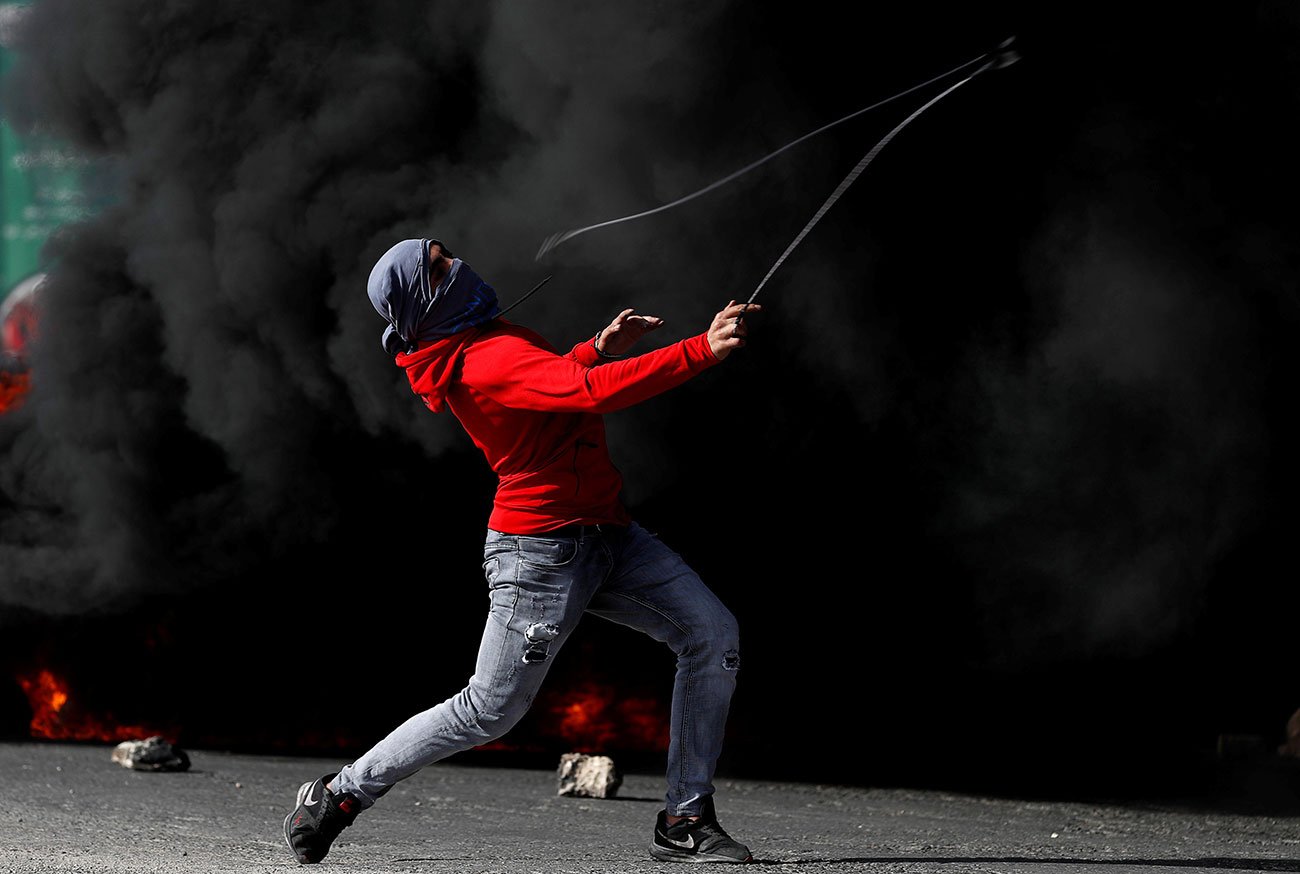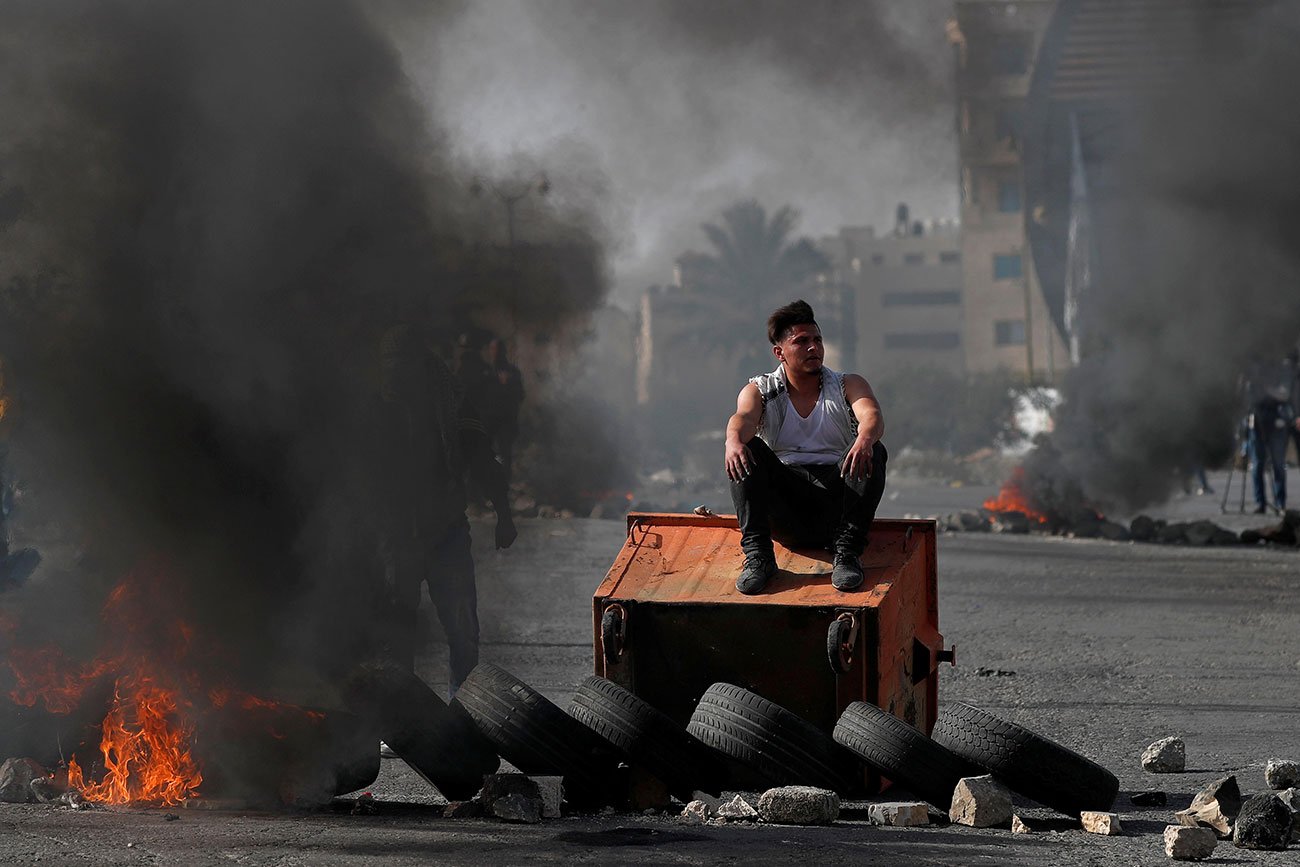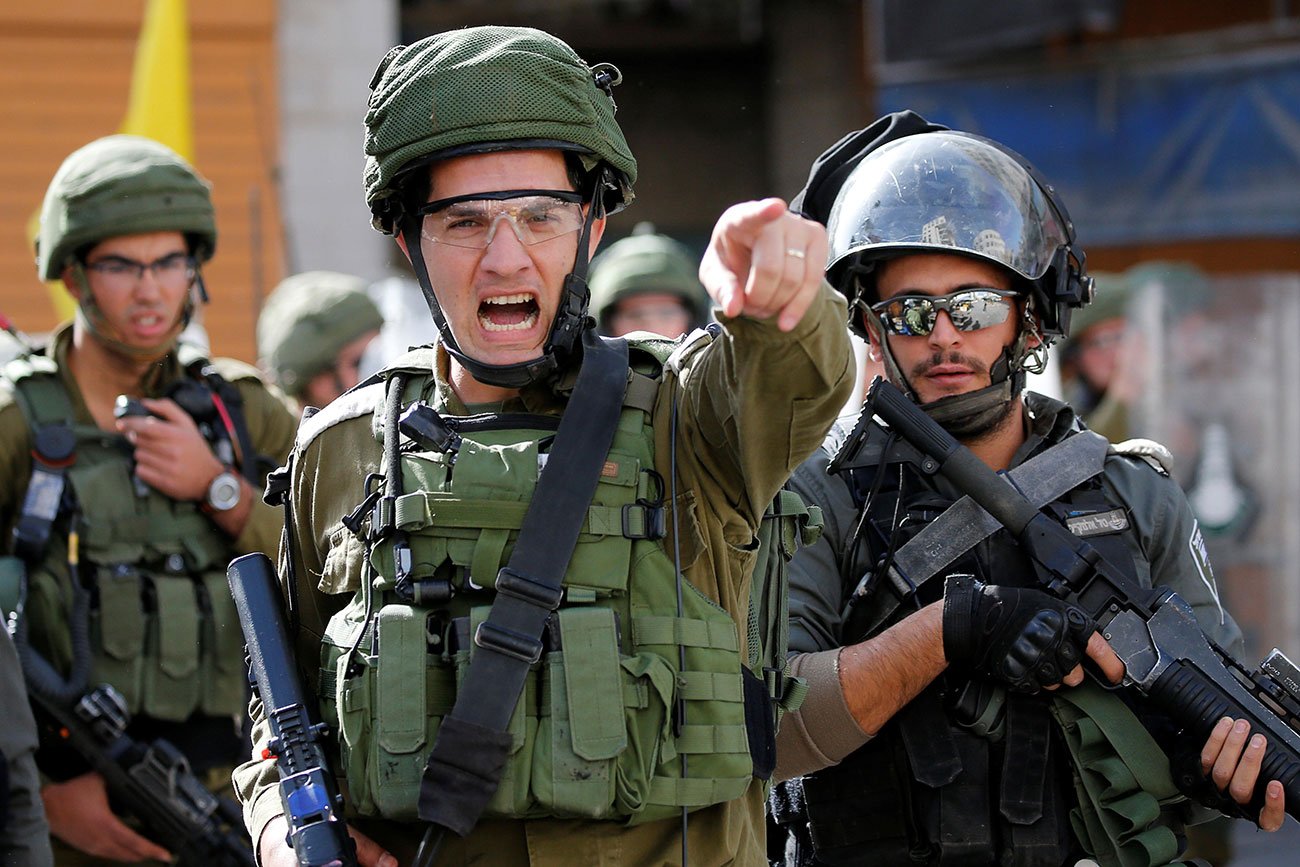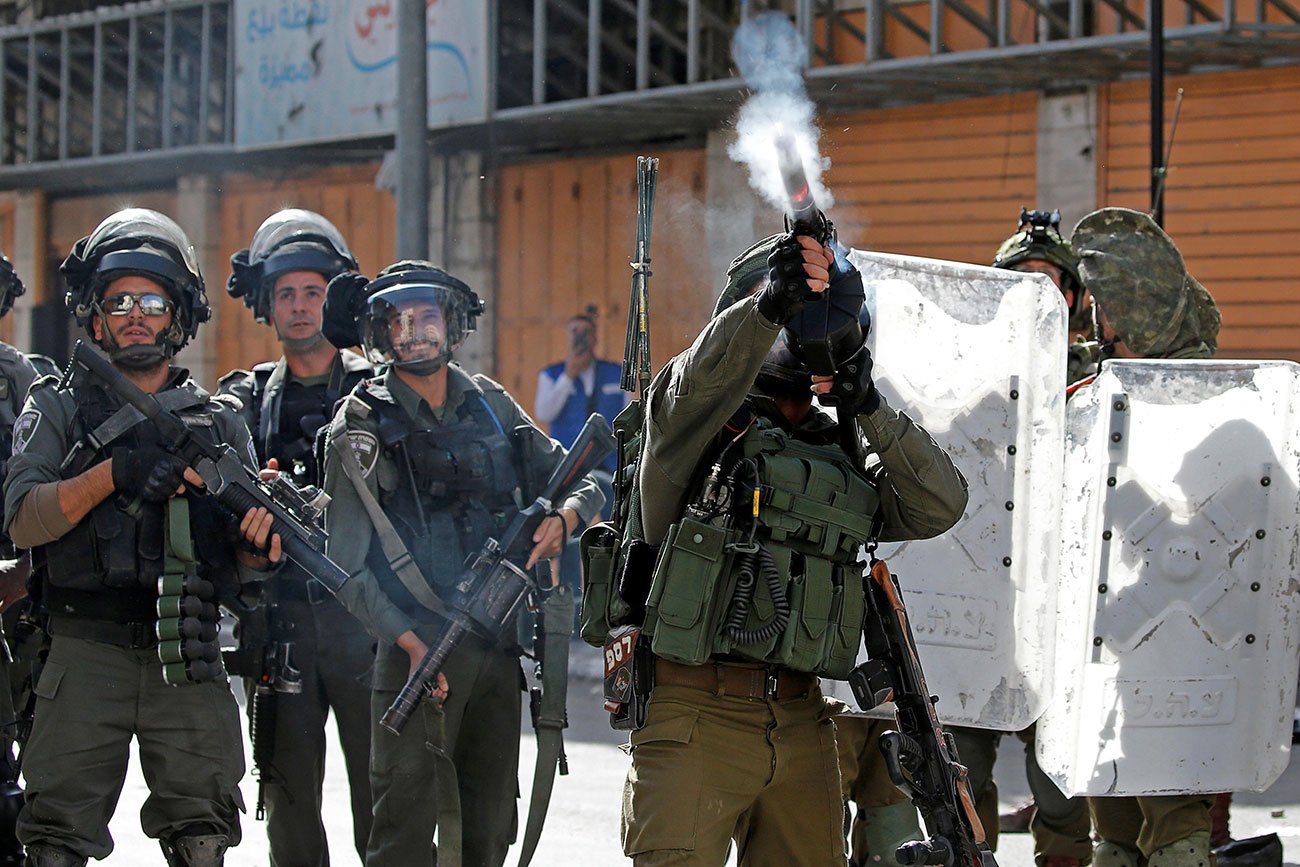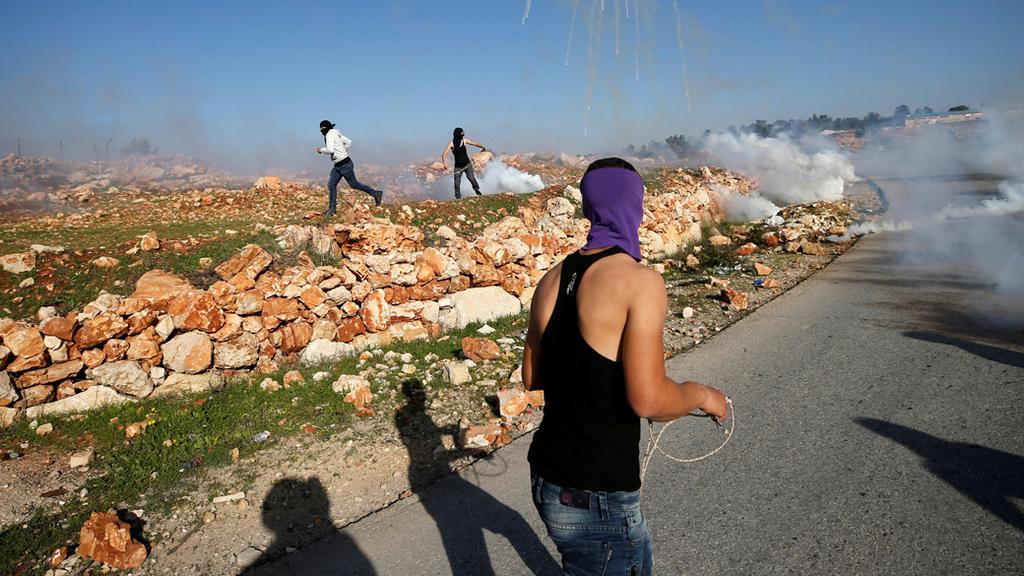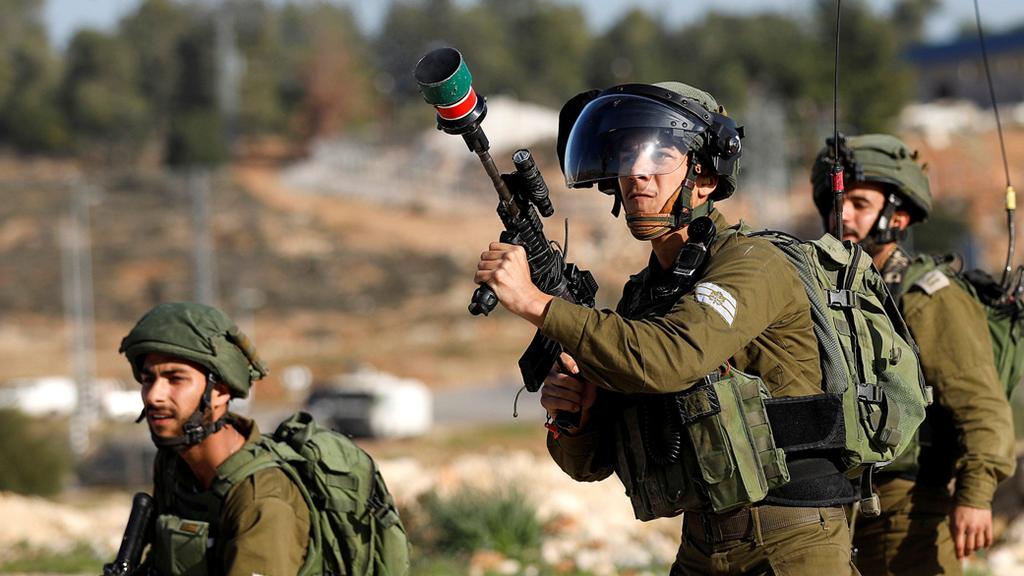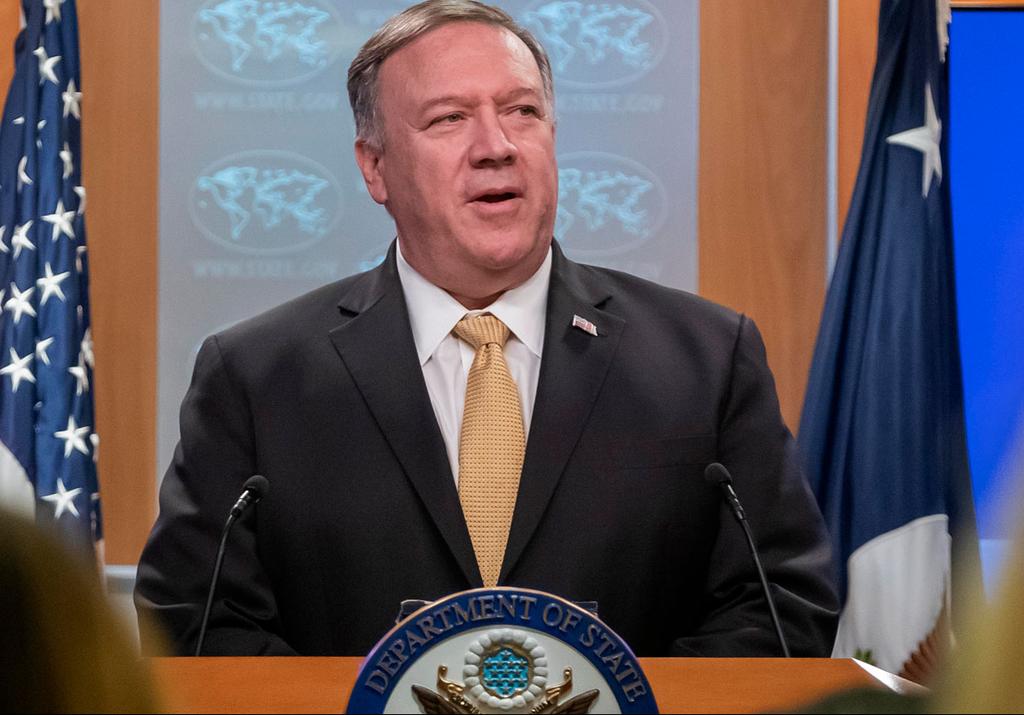Getting your Trinity Audio player ready...
Palestinians in the West Bank on Tuesday embarked on “a Day of Rage” in protest over the United States decision to soften its position on Israeli settlements in the area.
The demonstrations backed by the Palestinian Authority turned violent in several locations throughout the West Bank.
In the city of Hebron, several rioters threw stones at security forces who were prepared for a violent escalation in the area. Tires were also set alight by youths in the city of Bethlehem.
'Day of Rage' riots in Hebron
(Video: Gil Yohanan)
Five primary points of contention have been reported, with hundreds of Palestinian rioters present in each location: the village of Abu Dis; Rachel's Tomb near Bethlehem; Judea and Samaria junction near the city of Ramallah; in the city of Hebron and the city of Tulkarem.
Security forces were prepared for an escalation into violence, using non-lethal crowd dispersal countermeasures.
The Israeli authorities were bracing for the protests to escalate following the death of a Palestinian security prisoner of cancer earlier in the day.
Secretary of State Mike Pompeo last week repudiated a 1978 State Department legal opinion that held that civilian settlements in the occupied Palestinian territories are “inconsistent with international law.”
The move angered Palestinians and immediately put the U.S. at odds with other nations working to end the conflict.
The demonstrations were being held under the leadership of veteran Fatah leader Mahmoud al-Aloul, with the knowledge and consent of Palestinian President Mahmoud Abbas.
The protests are part of the “popular resistance” doctrine, characterized by riots which include throwing stones and burning tires.
"It is believed that it will be a very violent day in the West Bank," a senior PA source told Ynet on Monday. "If these protests result in fatalities on the Palestinian side, it could lead to a security escalation."
The biggest demonstrations were expected to take place at Huwara military checkpoint at one of the four main exits of Nablus, several locations in Hebron and the Focus checkpoint at the entrance to Ramallah.
In addition, some labor unions in the West Bank said they intend to end the workday in the afternoon hours in order to encourage people to participate in the demonstrations.
The Trump administration’s move was heavily criticized by many European countries, prompting the U.N. human rights office to issue statement rejecting the U.S. position that it now backed them.
"We continue to follow the long-standing position of the UN that Israeli settlements are in breach of international law," UN human rights spokesman Rupert Colville said.
"A change in the policy position of one state does not modify existing international law nor its interpretation by the International Court of Justice and the Security Council," he said.
On Monday, Arab League foreign ministers have denounced the Trump administration’s announcement in an emergency meeting in Cairo where Secretary General Ahmed Aboul Gheit called the decision “unfairly biased and unacceptable.” adding that the U.S. has forfeited its role as a neutral arbiter between Israel and the Palestinians.


